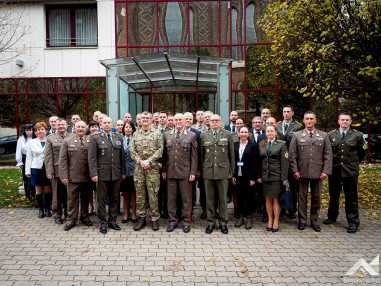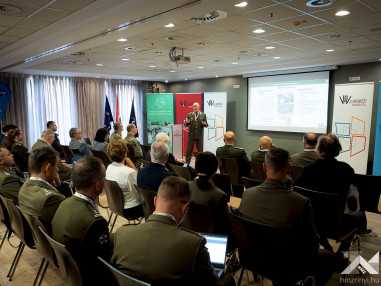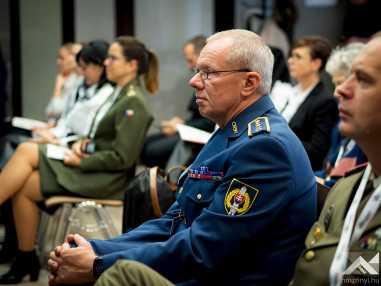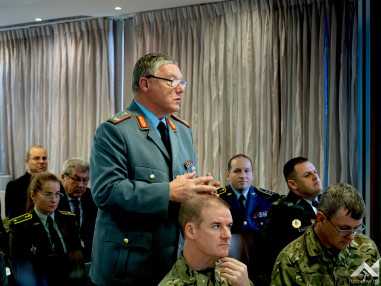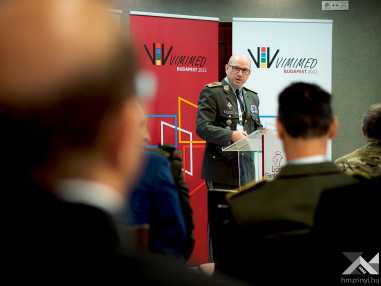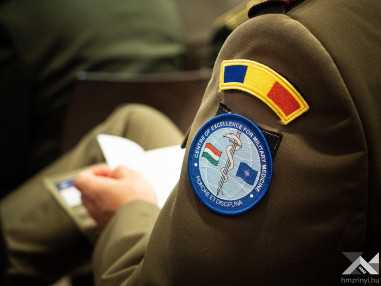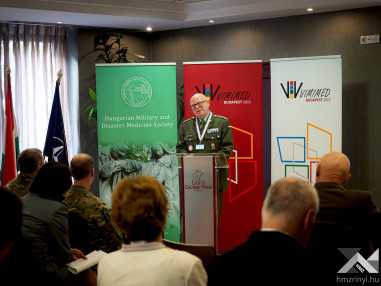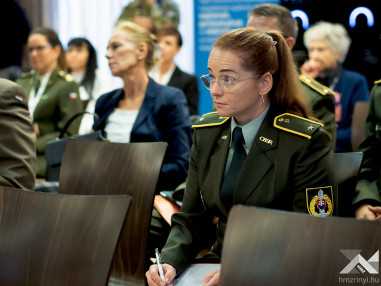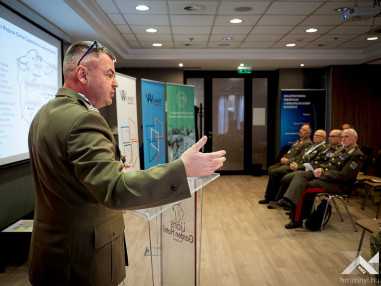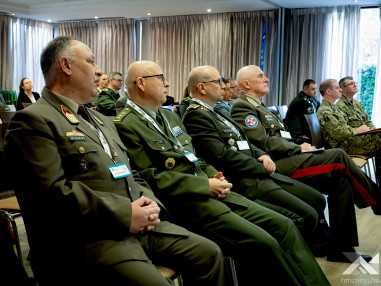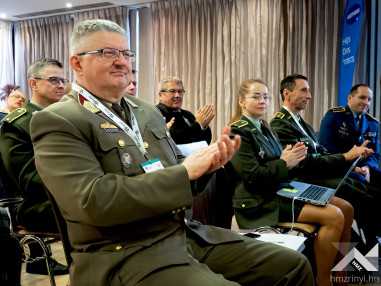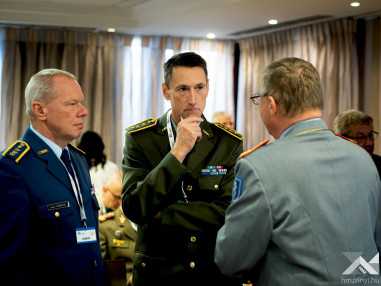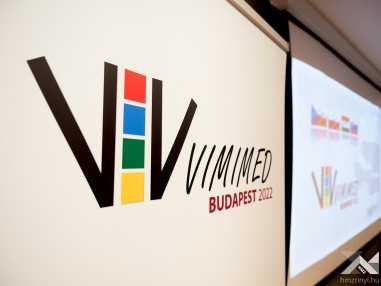Visegrád Four countries hold military medicine conference in Budapest
Text: Vendler Teszler | Photo: Sztaniszláv Horváth | 19:37 November 9, 2022Budapest is hosting the Visegrad Military Medicine Conference (VIMIMED), a military medical professional event taking place between 8–10 November. After two years, once again the leaders of the Slovak, Czech, Polish and Hungarian systems of military medicine have the opportunity to personally share their experiences at a common forum.
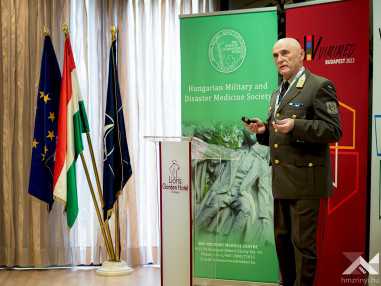
Initiated by the Visegrád Four countries, the professional program was first organized in Slovakia in 2019. Last year, the event has to be postponed due to the pandemic. While delivering the opening lecture of this year’s conference in Budapest, after introducing Hungary’s system of military medicine, Major General István Kopcsó, the commander of the HDF Medical Centre spoke about the results of this year and the future challenges ahead of the military organization led by him. As he said, the medical organization of the Hungarian Defence Forces has to carry out an increasing number of more and more complex tasks. For this reason, providing the personnel with proper training and preparation is a priority.
The major general said like the last two or three years, this year was quite busy, due to COVID, the events unfolding at the southern border of the country and the situation in Ukraine. In addition, our medics are continuously assigned serious tasks on foreign missions. “As compared to earlier years, we have conducted much more exercises, there are much more training programs, and we regularly host several kinds of different international forces. The tempo has increased, but I’m proud to say that the personnel have stood their ground”, emphasized the commander of the HDF Medical Centre.
It was stated at the conference that the provision of the required strength of medical personnel – especially the need to increase the number of military doctors – poses a general challenge. Popularizing this career path and raising its prestige are important goals of the HDF Medical Centre, too. “It is relatively easy to attract soldiers, but retaining them is a much bigger challenge, including medical professionals and doctors as well. At any rate, we need such physicians who we can deploy in the first echelon, so they serve with the troop-level medical units”, said Major General Dr. István Kopcsó.
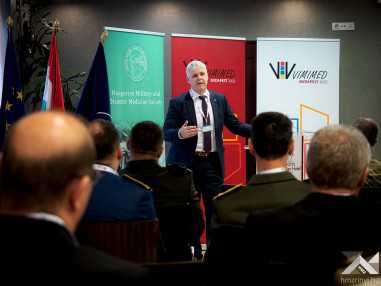
The introduction of the medical system of the Hungarian Defence Forces inevitably involved the presentation of the Military Hospital, Hungary’s flagship medical institution. At the conference, Prof. Dr. Miklós Norbert Wikonkál, Director General, HDF Military Hospital talked about the workings of the hospital.
The Military Hospital is facing one of the most important transformations in its history. As of 1 January 2023, the institution is to become part of the unified Hungarian health care system. “We are going to be subordinated to the MoI State Secretariat for Health Care, but of course we must not let go of our roots and traditions. Playing a role in military health care must continue to be a hallmark of the institution”, said the director general. He added that all soldiers currently serving in the system of the Military Hospital must receive due recognition in the future as well, and those turning to the institution for treatment must retain their entitlement, no matter what kind of beneficiary status they acquired in the past or what uniform they wear. The team of the institution must provide the maximum level of quality and take a positive attitude at the service of the patients.
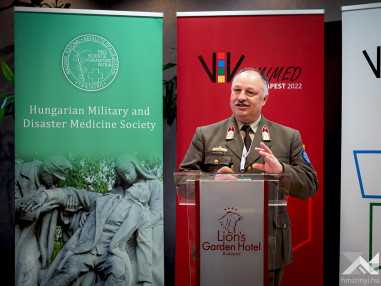
On the first day of the conference, Brigadier General Roman Jantos, Chief of Military Medical Service, Slovak Armed Forces, Colonel Petr Král, Deputy Chief of Military Medical Service, Czech Armed Forces and Colonel Zygmunt Glogowski, Deputy Chief of Military Medical Service, Polish Armed Forces presented the systems of military medicine in their countries. Colonel Dr. László Fazekas, the director general of the Budapest-based NATO Centre of Excellence for Military Medicine (MILMED COE) talked about the ongoing work at the Centre. Major General Tim Hodgetts, Chair of the Committee of the Chiefs of Military Medical Services in NATO (COMEDS) and Brigadier General Dr. Stefan Kowitz, Director of the Multinational Medical Coordination Centre/European Medical Command (MMCC/EMC) also attended the event and delivered lectures.
On the second and third days of the conference, the participants mainly share with each other their professional experiences gained in the handling of the coronavirus pandemic.
Galéria
